

By Mike Wilmington Wilmington@moviecitynews.com
WILMINGTON ON DVDS: Tangled, Fair Game, Chronicles of Narnia: The Voyage of the Dawn Treader, Casino Jack, Little Fockers, Skyline, Helena from the Wedding, Safe…Not Sorry
CURRENT AND RECENT DVD RELEASES
Tangled (Three Stars)
U.S.: Nathan Greno, Byron Howard, 2010 (Walt Disney)
These days, very often, the kids’ movies coming out of the big studios (and I mean mostly the cartoon features) look so much brighter, funnier, more entertaining — hell, so much more adult — than the supposedly adult comedies, concocted and targeted for supposed adults that…Well, don’t get me started. That goes for DreamWorks, for Warners. and it also goes for for Pixar ad the once and future American animation king, Walt Disney Studios, this week scoring again with their 3D fairytale feature Tangled.
A big hit in theatres, it‘s the latest movie for part of the team from Bolt, writer Dan Fogleman, director Byron Howard and Howard’s new co-director Nathan Greno. Bolt was a funny-animal road comedy that was brassy and sassy in a Looney-Tunesish way. This one, the Disney Studio’s 50th cartoon feature, tries to bend the best of the old classic Disney with the three-dimensional, digital, computerized new age, and it’s commercial too, but far more ambitious.
Tangled has a ripe, rounded, ultra-colorful look — like the Pixar movies, it’s both playful and expert — and it’s all about that sturdy Grimm Brothers lass, Rapunzel (Mandy Moore). It‘s about her 70 flabbergasting, glorious feet of golden hair and the huge imprisoning tower in which she‘s spent 18 claustrophobic years, with her witch of a “mother” Gothel (Donna Murphy). And it hauls on stage an Errol Flynnish handsome rogue of a dashing rascal named Flynn Rider (Zachary Levi), and all the funny animals and grotesque but lovable thugs and daffy creatures of the enchanted forest whom Rap and Flynn meet on her magical quest to reach and revel in the beautiful lights and castle of the kingdom‘s distant and beautiful city.
Unbeknownst to Rap is the fact that she’s a princess, kidnapped as a babe by the woman who now masquerades as her mother: evil, glamorous Gothel, a second cousin to the evil, glamorous witch-turned crone of Disney’s 1937 classic Snow White and the Seven Dwarfs. Bolt’s Gothel becomes a show-stopping villainess, with Broadway pipes (Murphy has won two Tonys), and she covets the restorative powers in Rapunzel’s magic hair, a secret ingredient that has kept Gothel young for ages.
That’s the Grimm/Disney setup. There are also a brace of snappy, poppy, semi-showstopping songs, composed by Alan Menken (a perfect Disney composer), with words by Glenn Slater (Home on the Range), who proves a reasonable substitute for Menken’s late, great lyricist-partner, Howard Ashman, a master of wordplay and Menken’s collaborator on the kiddie Rodgers-and-Hart-ish song scores for The Little Mermaid and Beauty and the Beast.
I was grateful for the songs, even though they‘re not as memorable a bunch as some Disney scores of the past. But that’s why the seemingly against-the-trend casting of Mandy Moore, Zachary Levi and Donna Murphy in the three leads works so well here. Instead of the movie actor superstars that have lately been popping up in cartoons, they’re all singers here (Murphy is a fantastic singer), and they all put across their numbers with style, pizzazz and lots of show biz verve.
Tangled — for all its jokes about its cutie-pie heroine’s multi-purpose hair (used variously in the movie as manacles, whip, lash, escape-rope, mop, blanket, hideaway and erotic come-on), is cleverly written and visualized, inventive, well-acted, and mercifully devoid of cute little bunnies, and tricksy little pixies. This movie — which was produced by Roy Conli and executive produced by Mr. Pixar himself, John Lasseter and Glen Keane — tries to live up to its landmark position as Disney cartoon Feature Number Fifty, by being a culminating work, a fusion of Disney‘s lucrative digital present with its glorious classic-animation, line-drawing past.
There’s 3D in Tangled, but it doesn’t slam you in the eyes. Some of the effects, like the glowing lights Rapunzel yearns for, hovering dreamily above the water by the castle, have an almost impressionistic, Monetesque, Debussyesque lyricism and softness. There’s digital stuff, but it melds seamlessly with the old style Disney character gallery of princess/hero/witch/funny-animals/villains/boobs-and-buffoons. The dialogue has a storybook lilt, but it also sports a wise-acre Tonight Show edge — courtesy of the Warner Looney Tunes’ trademark anti-Disney bite and sarcasm that the studio gradually assimilated.
I liked almost everything about Tangled. Except the title. Don’t get me started.
Extras: Deleted and extended scenes; Featurette; Storybook; 50th Anniversary countdown; Teasers.
Fair Game (Three Stars)
U.S.; Doug Liman, 2010 (Summit Entertainment)
Fair Game is an almost formulaic political bio-drama, but the formula isn’t a bad one.
Basically, this is a good-hearted, well-done show, crisply and knowledgably written, sympathetically directed and extremely well-acted — by Naomi Watts as Valerie, Sean Penn as Joe, and a strong supporting cast that includes Bruce McGill, Noah Emmerich, Anand Tiwari, Adam Lefebvre as Karl Rove), David Andrews as Lewis “Scooter” Libby, and, as themselves, George Bush, Dick Cheney and Condoleeza Rice. (Some of the names in the cast list are partly redacted and I hasten to add that almost none of the three real-life cameo stars would have had anything to do with this movie if they could help it — though it’s their best work.)
But the Plame-Wilson-Libby-Rove affair is no laughing matter.
The real-life Plame was a longtime C. I. A. operative, with a lot of agents in the field. Wilson was an ex-ambassador and adviser/consultant who had investigated for and briefed the U. S. government on the so-called “Yellowcake from Niger” rumor, and concluded it was almost certainly a crock. Wilson, a feisty guy, then sat through Bush’s tense speech recounting the road to doomsday and the “mushroom cloud” awaiting us all unless we did what he wanted us to: invade Iraq and uncover the supposed Weapons of Mass Destruction hidden under every sand dune, or secreted there, someplace, somewhere. Wilson became angry and wrote a New York Times op-ed piece saying it was all a load of baloney. And it was.
SPOILER ALERT
Truth has consequences, of course. What followed was the famous Robert Novak column, outing Valerie as a C. I. A. officer, ending her career, damaging her marriage and her and Joe’s lives and spewing heavy negative implications, mainly that Valerie pulled strings to get Joe the W. M. D. gig, and that they were a couple of rogue liberals anyway, and wasn’t she really just a secretary? (And Joe really a soda jerk?) Karl Rove allegedly told MSNBC’s Chris Matthews Valerie was “fair` game,” a frightening thought in the era of sportsman/citizen Cheney. Soon both Valerie and Joe were twisting in the wind. The rest of the movie shows how they survived, and how the truth came out.
END OF ALERT
Watts and Penn, both excellent, capture the professional savvy of the Wilson’s, and the drama of their disrupted patrician comfort zone and their marital battles, as well as Valerie‘s accelerating unease and Joe‘s increasing anger. Watts never suggests an actress stepping into or out of a role; nor does she seem overdressed and over-styled for the part. Instead, she suggests, with great economy and a mastery of undercurrents and subtext, the look and feel of a woman used to power and privilege, trying to do a hellishly difficult job while her world explodes around her.
As for Penn, he has Joe‘s brainy manner, quietly combative mood and wavy, gray-streaked hairdo, and a hint of much of what lies beneath it. It’s crucial for Penn to seem both stubborn and absolutely straight-arrow in this role, and he does, he is.
The movie is oddly constructed and frankly, it spends too much time on the domestic drama. I just wanted more legal thrills, more comeuppance. But it’s good — though a good documentary on the Wilsons might have been more effective.
By the way the WMD‘s are still missing. But I’ve heard unconfirmed reports from unnamed British spies and unidentified, unreliable journalistic sources — soon to be leaked to the world by Glenn Beck — that they were moved from the dunes of Iraq to Lebanon to Iceland to somewhere in Antarctica, and are now probably hidden in the White House attic, next to the shredded U. S. Constitution, Barack Obama’s Cuban birth certificate and an autographed copy of Karl Marx’s Das Kapital, with the WMDs awaiting use in a full scale assault on the Ladies’ Gun Club of Bent Barrel, Texas and then every God-fearing soul West of Maine. We may be safe though. Nobody can figure out how the damned things work.
Extras: Commentary with Valerie Plame and Joseph Wilson.
Chronicles of Narnia: The Voyage of the Dawn Treader (Two and a Half Stars)
U. S.-U.K.: Michael Apted, 2010 (2oth Century Fox)
The movie series based C. S. Lewis’s Chronicles of Narnia — which was one of the great children‘s book cycles in the English language — nearly crashes on the cliffs the sea-storms of modern big special effects 3D moviemaking in the third Narnia movie, tongue-twistingly entitled Chronicles of Narnia: The Voyage of the Dawn Treader.
Nearly. But not quite. The movie’s not bad, even if it’s initially a little flat and unwelcoming. I had a devil of a time getting into it though, despite Lewis, despite the director here (Michael Apted), and despite the fact that Dawn Treader begins with very nearly its best scene: a bang-up fantasy sequence of a seascape painting that magically floods a staid British room and sends the three child protagonists off into a new round of Narnian adventures.
But, as the story unwinds, the characters seem flat or obvious, the castles and ship and the world itself look a bit unused, the “real-life” World War II scenes seem too short and shallow, and the monsters and magical animals often have more personality than the humans, especially the kids. The swashbuckling rat, Reepicheep (voiced by Simon Pegg this time, instead of Eddie Izzard) has a lot of the best lines — and, in many ways, he steals the movie, which is a bit big for his britches.
If Dawn Treader doesn’t quite succeed, it’s not for want of effort and some talent, and even a determination to stir things up. Oddly, director Michael Apted (of the “Up” series), or the second unit, handles some of the big action-fantasy sequences more enticingly than they do the more intimate dramatic and character scenes that you’d have thought would have been Apted’s metier.
Narnia is cast, like the Potters, with three fetching young British actors at the center (Georgie Henley and Skandar Keynes as the continuing young Narnia adventurers and conquerors Lucy and Edmund Pevensie, and Will Poulter as their pain-in-the-ass cousin Eustace Scrubb), surrounded by classy adult support (in this case, Pegg as the rat, Liam Neeson as the lion, Tilda Swinton as the white witch, and Ben Barnes as Prince Caspian). It‘s a movie full of love for the printed word and for archetypal fancy and fantasy, jam-packed with swords and sorcery, ships and storms, and dragons and sea serpents. And it ends spectacularly at the edge of the world.
It’s just a little humorless, humanless, sparkless. The movie begins superlatively well, with that oceanic rouser of a fantasy sequence. But soon the effects take over and the show’s rowdily thrilling games of rat and dragon (starring Reepicheep and the unspeakable Eustace, transmogrified into the fire-breathing monster) can’t totally save things. They should have trusted C. S. Lewis more.
Extras: Commentary with Apted; Featurettes, Deleted scenes.
Casino Jack (Two and a Half Stars)
U.S.: George Hickenlooper, 2010 (20th Century Fox)
Casino Jack is Jack Abramoff, a tasteless and inept phony of a movie producer (Dolph Lundren’s boss on the imbecilic Red Scorpion), as well as a long time Republican Party super-lobbyist — who wound up where most of these money-mad creeps swindlers and bribe artists belong: in the slammer.
The well-connected ex-richboy Jack, a fitness fanatic who tells us here that he “works out every day,” was some character. He parleyed his long history of G.O.P. activism (with a list of buddies that included baby-faced Ralph Reed, Grover Norquist and overweight imp Karl Rove) and his good relationships with President George W. Bush and Congressional Majority Whip Tom (“The Hammer”) DeLay, Congressman Bob Ney and others (from both parties but mostly Republicans) into a lobbying empire that basically robbed his customers blind (including several native American tribes, in search of gambling franchises). Tough shit, clients. Jack and his right hand, Mike Scanlon (Barry Pepper), bilked them of millions, while insulting and ridiculing them and spending all their money. They also got some of his lawmaker chums indicted, convicted and sometimes imprisoned — where they all belong.
This story was told brilliantly in Alex Gibney’s Casino Jack and the United States of Money, one of the best documentaries of the year, and one political movie everyone should try to see. It’s told somewhat less well in George Hickenlooper’s gutsy but disappointing docu-drama Casino Jack, which casts Kevin Spacey as Jack (a very good pick), and includes characters based on all of the others above, called by their right names (including John McCain), plus pretty Kelly Preston, as Jack‘s wife Pam, Graham Greene as skeptical Native American Bernie, Pepper as Jack‘s crooked G. O. P. crony and foul-mouthed operative Scanlon (a character less honorable than the same actor‘s Western bandit Lucky Ned Pepper in “True Grit“), and Jon Lovitz as sleaze-ball Adam Kidan, and Maury Chaykin as hit man Big Tony, two other typical Abramoff associates.
What goes wrong with George’s movie is that he and writer Norman Snyder (Dead Ringers) try too much to make it a dark comedy, even though Snyder isn’t really that good at jokes. The film doesn’t analyze either Jack or the lobbying world enough. It just keeps raking up muck, without explaining well enough that this muck is systemic, the creeps eternal.
Spacey is great at playing smug phonies and bemused exploiters, but he doesn’t have enough material here, enough juice. Neither does George. (Hickenlooper, not Bush.) The movie looks slick and well-tooled — but maybe it’s too slick. It isn’t as informative or as convincing as Gibney’s laser-eyed documentary. Still, it’s a good, brave film, in many ways. I wasn’t at all happy writing this review. George Hickenlooper (Hearts of Darkness), who died two months before this movie was released (and whose Colorado politician cousin John Hickenlooper is in the cast), was an old co-worker and friend of mine and someone I‘ve known for years. Ad it takes a lot of guts to make a movie like Casino Jack, even when it doesn’t quite work.
Extras: George Hickenlooper’s photo journal; Deleted scenes; Gag reel.
Little Fockers (One and a Half Stars)
U. S.: Paul Weitz (2010) (Universal)
I wonder if there’s any real need to say anything at all about Little Fockers — the latest sequel to the Robert De Niro-Ben Stiller, Meet the Parent-Meet the Fockers comedy franchise — except just this: This movie is not funny.
This movie is not even vaguely funny. This whole movie deserves a SPOILER ALERT. And I don’t say this as anyone hostile to the whole idea of the Meet the Parents-Meet the Fockers saga. I missed Meet the Fockers, but I laughed all the way through Meet the Parents. Now, that’s a funny movie.
Little Fockers has most of the same cast as Parents-Fockers — including Stiller as Greg Focker, beleaguered male nurse, once engaged and now married to Pam Byrnes (Teri Polo), daughter of gruff C.I.A. operative Jack Byrnes (De Niro) — who thought Greg was an idiot or a traitor– and Jack’s nice wife Dina (Blythe Danner). There’s also Pam’s rich, persistent New-Agey ex-boyfriend Kevin (Owen Wilson), plus (introduced in Fockers), Greg’s one-time counter-culture Jewish parents, Bernie (Dustin Hoffman) and Roz (Barbra Streisand).
Quite a cast. But Little Fockers not only didn’t make me laugh. It didn’t even make me fantasize about laughing.
Here’s an example of an alleged Little Focker joke. (Or a “fock-yock“ maybe). Hard-ass Jack Byrnes, played by that great actor De Niro, has decided to put his affairs in order. So he calls in accident-prone son-in-law Greg — whose five-year-old twins are the Little Fockers of the title, and whose impending twin double birthday is the plot hook.
Jack tells Greg that he will now anoint his longtime butt/target, non-macho Greg — who has been pratfalling, wreaking unintentional havoc, damaging heirlooms and pets and otherwise fouling up since the series began. Greg will now be, as Jack puts it, The Godfocker. (An actual joke from the movie). Amother heir, Bob had his chance; he could have been the Bobfather. (Another actual joke.) But now erstwhile schmo Greg will be the Godfocker, or maybe the Fockfather, or the Motherfocker. (My jokes, and just as awful)
What kind of baloney is all this? The actor Robert De Niro won an Oscar for The Godfather II, but the character Jack Byrnes, isn’t even Italian, and he‘s certainly no fan of the Mafia, or lawbreakers in general. Wouldn’t he want Greg to be the Big Shillelagh? Or the Big Duke? Or another Jack Kennedy? Or at least the Irish Godfocker? (What about Greg as Don Corneone, the Oddfather?)
De Niro doesn’t crack a smile during his Godfocker scene — that‘s obviously the way he‘s been directed — and yet the only way the joke could have worked is if Jack had smiled, as if he thought it was funny.
Nor will you chuckle, I’m betting, when Barbara Streisand as Greg’s mom Roz, cavorts on her sex education TV show. (“People who need people…“) Or when Hoffman as Bernie ambles around trying to promote flamenco orgies. Or when Wilson as Kevin reveals the tattoo of Pam he’s got just above his ass. (By mistake, he insists.) Or when Jessica Alba (as a gal called “Andi Garcia”) comes bopping in, determined to hire young male nurse Greg as a celebrity spokes-rep for her product/client, Sustendo (a sort of Godfocker’s Viagra).
And I doubt you’ll laugh, unless you suffer from terminal Farrellyitis, when Jack pops some Sustendo, and gets a huge hard-on, and Greg has to jab Jack’s schlong with a hypo and young twin Henry wanders in and sees everything.
That last scene is the nadir of Little Fockers and maybe of Farrellyism in general. But, like I said, this movie is just not funny. Horny, maybe, but not funny.
Anyway, I lied. I did smile at something in Little Fockers. I smiled at Jessica Alba — who was maybe a little too bouncy and silly, but oh so cute. I didn’t even need any Sustendo. The movie probably does though. Hey, listen, what about Streisand and Bette Midler as the Goodyentas? Or Dustin Hoffman as the Gonif-father? Or Ben as Martin Sheen in A-Fock-alypse Now? Ah, fockedaboutit!
___________________________________________________
Skyline (One Star)
U.S.: The Brothers Strause, 2010 (Universal)
Alien monsters invade Los Angeles, and they do it even more unbelievably (if you can believe it) than the ones in Battle: Los Angeles. Here, in this sub-Cloverfield fiasco, the flying robot monsters not only lay waste to L. A., but — demonstrating the same perverse puritanism that afflicts the fiends of Halloween and Friday the 13th, they zero in on a group of fornicating L. A. glam-yuppies, and a couple being lured from New York, some of whom seem to be working in visual affects in the movies.
Irony, maybe? These yuppies are so stone-stupid they have lover’s quarrels in the middle of monster attacks, and repreatedly run around rooftops and lock themselves out of their apartment building. Anyway, this movie, directed by the Brothers Strause (no relation to the Brothers Strauss of Vienna) has good visual affects and a lousy script, so maybe the monsters should have gone after some fornicating screenwriters. Awful stuff. The best acting is by the monsters, who at least try to get the movie over with faster. Extras: Commentaries with the Brothers Strause and screenwriters Joshua Cordes and Liam O’Donnell; Deleted, extended and alternate scenes; Pre-Visualization; D-Box enabled.
Helena from the Wedding (Three Stars)
U.S.: Joseph Infantolino, 2010 (Film Movement)
The average romantic comedy from the major studios may be pretty mediocre these days, but this little low budget indie does what a romantic comedy should, and then does what a romantic drama should as well. It’s about a party in a snow-covered lodge among some 30something friends, whose couplings and friendships and sense of entitlement may all be getting frayed at the edges. Lee Tergesen and Melanie Lynskey play the married hosts, Alex and Alice, and they’re both excellent. And so, despite relatively short screen time, is Gillian Jacobs as Helena, the younger knockout from the wedding, who walks into the room and immediately raises the male temperature. (She does it just right.)
As for the rest of the ensemble — Dagmara Dominczyk, Paul Fitzgerald, Dominic Fumusa, and Corey Stoll — well, they’re all good. So is the dialogue, a sore spot in many of the new movies they call “romcoms.” This one is something better: a real romantic comedy, with real-seeming characters. Extras: Short “Awaiting Examination” (Sweden: Elisabet Gustafsson, 2010) (Two and a Half Stars) A fable about nonconformity that suggests John Hughes doing Franz Kafka. Note: Film Movement is a film-of-the-month club that offers excellent new festival fare. Link www.filmmovement.com.
Safe…Not Sorry (Two Stars)
U.S.: Various directors, 1951-1982 (Kino)
How many of you remember those often awful 16mm educational films we had to sit and suffer through in junior high and high school? Make you shudder? Now they’dl probably make you laugh, maybe even feel some half-dopey nostalgia, as in Safe…Not Sorry, a collection of vintage, if hardly classic, films on safety.
Some of the most fascinatingly bad films you’ll see anywhere have been gathered by Skip Elsheimer, founder of the A. V. Geeks and collector/owner of thousands of these cinematic oddball curios, into a collection of 14 preachy, often terrible, but usually amusing little movies that evoke the half-obnoxious, half- delightful sense of once again sitting at your school desk while the lights go down and an over-enthusiastic voice, accompanied by corny dramatics, warns you about the dangers of everything from school fires to broken ladders to loaded rifles to perverts in the park.
These movies are truly bad. But they’ve also become entertainingly bad, and some of them are actually less awful than others. The best of the bunch here include the supernatural romance and ode to schoolbus safety Ghost Rider, the suspenseful tale of a dad trying to guess what happened to his absent family Ten Long Minutes, the genuinely disturbing recreation of an elementary school fire, Our Obligation, and (largely because of its narrator, that matchless movie fussbudget Edward Everett Horton), the bike safety marathon farce One Got Fat. Retaining camp interest are two memorable little pictures by the undisputed top dog in the safety film sub-sub-genre, Sid Davis, a.k.a. “The King of Calamity.” Sid’s legendary career in cautionary cinema was started with help from the movie actor for whom he once doubled, Duke Wayne and the King’s contributions here include the chillingly everyday study of pedophilia Dangerous Stranger, and the ghastly compendium of household perils, Live and Learn.
As for the worst of the worst, it would hard to make a movie any badder than Safety: Harm Hides at Home (even the title is horrible), the utterly inept tale of the adventures of a sexy superheroine named Guardiana or Safety Woman, whose insignia is three torches (shouldn’t it be three fire-extinguishers?) and who keeps materializing in the homes of unsafe children, just when something has gone terribly wrong. There’s also the stupefyingly banal Say No to Strangers, another warning against candy-bearing deviants, created by Irvmar Productions, a company that usually made “sleazy exploitation,” and the clownishly bad Trigger Happy Harry: a ridiculous comedy about gun saftey sponsored by the National Rifle Association.
All these movies, even the total turkeys, have at least some interest, and you could argue that, in hammering home their lessons, they may even have accomplished some good.
They say the road to hell is paved with good intentions, but sometimes hell, or at least purgatory (as in the set’s vomitous chronicle of an Army camp epidemic caused by unsafe food, An Outbreak of Salmonella Infection), can be entertaining. This is a collection you won’t soon forget, however much you may want to.
Extras: Introduction by Skip Elsheimer; Notes on each film.









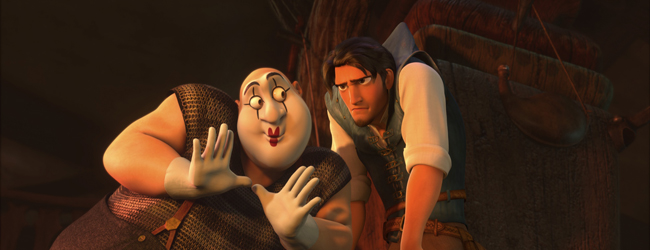
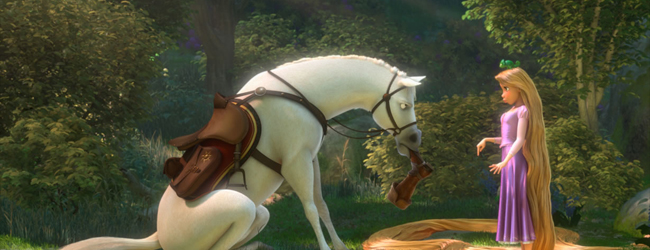
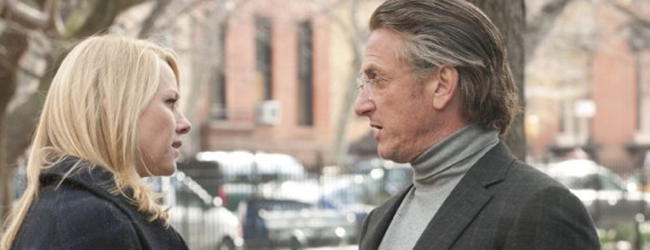
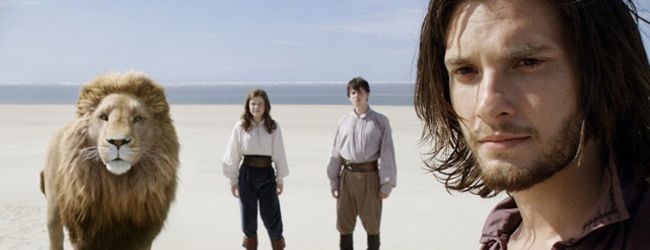
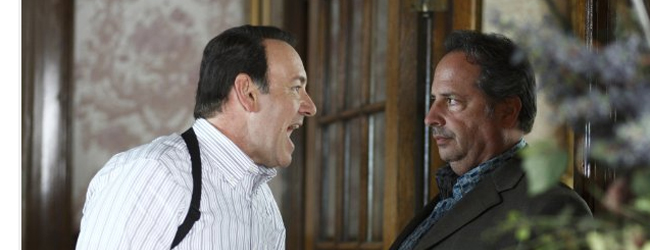






Thanks for the good writeup. It in truth was a entertainment account it. Look advanced to far brought agreeable from you! By the way, how can we be in contact?
I do trust all the ideas you have introduced to your post. They’re very convincing and can definitely work. Still, the posts are very brief for newbies. May you please extend them a little from subsequent time? Thanks for the post.